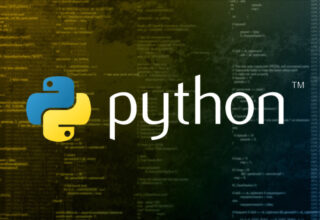Conflict Resolution with Emotional Intelligence

Conflict and disagreements are a natural part of everyday life as there is not enough of what everyone wants to go around. Conflict occurs over money, goods, services, power, possessions, time, and much more.
If something exists and more than one person wants or needs it, there is a potential for conflict to occur.
Conflict occurs all the time – at home, at work, between individuals, in teams, in groups, in tribes and between nations. Where there are people, there is conflict. This is underpinned by how people are using their emotional intelligence.
Some disagreement and conflict is inevitable as this where learning, creativity, and understanding occurs. It is not that conflict occurs that is the issue, it is how it is managed.
This course is about proactively working together with others in ways that will help you to communicate more efficiently as you work with them to understand and work with differences that lead to conflict. In addition, the skills, processes and tools taught in this course can bring value to other aspects of your life.
Negotiating and resolving conflict requires good use of emotional intelligence – your ability to balance your emotional needs with your thinking. Managing conflict involves using skills such as report, empathy and listening.
Conflict modes and styles are reviewed looking at the strengths and liabilities of each. You get the chance to complete a questionnaire that will give you an insight to the mode/style that you prefer to use in conflict situations. Completing this practical activity will enable you to identify ways to reframe and defuse conflict, creating more productive outcomes and results.
The course, also, covers flexibility and how you use behavioral preferences around working with time. Your flexibility and adaptability underpins how you work with change and can have a profound impact on others that could lead to conflict.
By completing this course, you will be able to
- Identify what conflict is about and how people react to conflict
- Recognize why some conflict is to be expected and why it is a part of healthy relationships
- Compare and contrast the various modes that can be used in conflict resolution
- Assess your own mode of conflict and how this helps or hinders you in working with conflict
- Explain how emotional responses differentiate from rational responses in conflict
- Determine your behavioral preferences around managing and working with time and how they impact upon your flexibility
- Develop strategies for dealing with conflict and have some ideas about how to resolve difficulties
- Discover how emotional intelligence is used to resolve conflict and build emotional bonds
Why choose Edplx?
- Internationally recognised accredited qualification
- Access to our free career advisors
- Approved UK Learning Centre
- 1 year accessibility to the course
- Attain PDF or hardcopy certificate to show employers
- Study at your own pace anywhere
- Employer has access to certificate validation
- Tutor Support available Monday-Friday
- Invitation to job fairs
Course Curriculum
This course will cover some of the following topics:-
CONFLICT RESOLUTION WITH EMOTIONAL INTELLIGENCE
- Introduction
- What is Conflict and Why It Occurs
- The Issues Around Conflict
- Conflict and Trust – Factors and Questions to Consider
- Trust
- The Trust Equation
- Building Trust
- Bullying at Work
- The Basic Anatomy of the Brain
- Responses to Emotional Events
- The Cycle of Behavior
- Emotions in Conflict
- Managing Fight and Flight Behavior
- Ways of Working with Conflict
- PDF: Thomas Kilmann Conflict Mode Assessment
- The Thomas Kilmann Conflict Mode Model
- Compromising
- Competing
- Collaborating
- Avoiding
- Accommodating
- Basic Skills in Conflict Resolution
- The Agreement Box – The All Important Area of Agreement
- Working with Third Party Intervention When it Becomes Necessary
- Working to Resolve Conflict
Course Features
- Lectures 25
- Quizzes 0
- Duration 1h 24m
- Skill level All levels
- Language English
- Students 267
- Certificate No
- Assessments Yes
-
Conflict Resolution with Emotional Intelligence
- Introduction
- What is Conflict and Why It Occurs
- The Issues Around Conflict
- Conflict and Trust – Factors and Questions to Consider
- Trust
- The Trust Equation
- Building Trust
- Bullying at Work
- The Basic Anatomy of the Brain
- Responses to Emotional Events
- The Cycle of Behavior
- Emotions in Conflict
- Managing Fight and Flight Behavior
- Ways of Working with Conflict
- PDF: Thomas Kilmann Conflict Mode Assessment
- The Thomas Kilmann Conflict Mode Model
- Compromising
- Competing
- Collaborating
- Avoiding
- Accommodating
- Basic Skills in Conflict Resolution
- The Agreement Box – The All Important Area of Agreement
- Working with Third Party Intervention When it Becomes Necessary
- Working to Resolve Conflict





